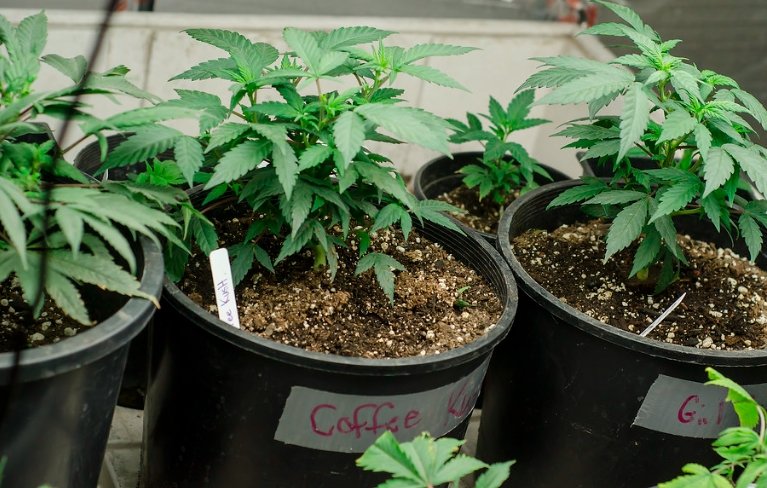Colorado has recently implemented new rules for marijuana hospitality businesses, allowing them to offer on-site consumption of cannabis products and other services to their customers. The new rules, which took effect on January 1, 2024, are part of the state’s efforts to regulate and promote the marijuana industry, as well as to address some of the challenges and opportunities that have emerged since legalization.
What are marijuana hospitality businesses?
Marijuana hospitality businesses are establishments that are licensed by the state to provide a space for adults 21 and older to consume cannabis products that they bring or purchase on the premises. These businesses can also offer ancillary services such as food, beverages, entertainment, education, and transportation. Some examples of marijuana hospitality businesses are:
- Marijuana hospitality and sales businesses: These are retail marijuana stores that have a separate area for on-site consumption. Customers can buy cannabis products from the store and consume them in the designated area, or bring their own products and pay a fee to use the space.
- Marijuana hospitality businesses: These are businesses that do not sell cannabis products, but provide a space for on-site consumption. Customers can bring their own products and pay a fee to use the space, or purchase products from a licensed delivery service that operates in partnership with the business.
- Mobile marijuana hospitality businesses: These are vehicles that are licensed to transport customers to and from marijuana hospitality businesses, or to other destinations where they can consume cannabis products. Customers can bring their own products and consume them in the vehicle, or purchase products from a licensed delivery service that operates in partnership with the vehicle.
- Marijuana hospitality events: These are temporary events that are licensed to provide a space for on-site consumption of cannabis products. Customers can bring their own products and consume them at the event, or purchase products from a licensed vendor that operates at the event.
What are the benefits of marijuana hospitality businesses?
Marijuana hospitality businesses offer several benefits to the state, the industry, and the consumers. Some of the benefits are:

- Increasing tax revenue and economic activity: Marijuana hospitality businesses generate tax revenue for the state and local governments, as well as create jobs and business opportunities for the industry. According to the Colorado Department of Revenue, the state collected more than $2.2 billion in marijuana tax revenue from 2014 to 2023, and the industry employed more than 40,000 people in 2023.
- Reducing public consumption and impaired driving: Marijuana hospitality businesses provide a safe and legal alternative for consumers who want to consume cannabis products outside their homes, without violating public consumption laws or risking impaired driving. According to the Colorado Department of Public Safety, the number of marijuana-related citations issued by the Colorado State Patrol decreased by 51% from 2014 to 2023, and the number of drivers involved in fatal crashes who tested positive for THC decreased by 18% from 2016 to 2023.
- Enhancing consumer choice and experience: Marijuana hospitality businesses offer a variety of options and services for consumers who want to enjoy cannabis products in different settings and with different people. Consumers can choose from a range of products, modes of consumption, and activities, as well as socialize with other cannabis enthusiasts and learn more about the plant and its effects.
What are the challenges and opportunities of marijuana hospitality businesses?
Marijuana hospitality businesses also face some challenges and opportunities in the state, as they navigate the complex and evolving regulatory landscape, as well as the changing consumer preferences and market trends. Some of the challenges and opportunities are:
- Complying with state and local regulations: Marijuana hospitality businesses must comply with a set of rules and regulations that govern their licensing, operation, and compliance. These rules and regulations vary by state and local jurisdictions, and may change over time as new laws and policies are enacted. For example, some of the rules and regulations that marijuana hospitality businesses must follow are:
- They must obtain a state license and a local license, and pay the required fees and taxes.
- They must comply with the state’s health and safety standards, such as ventilation, sanitation, fire prevention, and security.
- They must comply with the state’s social equity requirements, such as hiring and training employees from disproportionately impacted communities, and supporting community reinvestment programs.
- They must comply with the state’s consumer protection requirements, such as verifying the age and identity of customers, providing warning and educational materials, and prohibiting the sale or consumption of alcohol or tobacco products.
- They must comply with the local zoning and land use regulations, such as distance requirements from schools, parks, and other sensitive areas, and noise and odor restrictions.
- Competing with other states and markets: Marijuana hospitality businesses must compete with other states and markets that offer similar or different services and products to consumers. As more states legalize marijuana for medical or recreational use, and as the federal government moves toward decriminalization or legalization, the demand and supply of cannabis products and services may change across the country. For example, some of the factors that may affect the competition and cooperation among states and markets are:
- The availability and accessibility of marijuana hospitality businesses in neighboring or nearby states, such as New Mexico, Arizona, Nevada, and Utah, which have also legalized marijuana for recreational use.
- The diversity and quality of marijuana hospitality businesses in other states, such as California, Oregon, and Washington, which have a longer history and experience of legalizing and regulating marijuana for recreational use.
- The innovation and creativity of marijuana hospitality businesses in other markets, such as Canada, Mexico, and Europe, which have different legal and cultural frameworks and consumer preferences for cannabis products and services.
- Adapting to consumer needs and preferences: Marijuana hospitality businesses must adapt to the changing needs and preferences of consumers, who have different expectations and desires for cannabis products and services. As the marijuana industry matures and expands, and as the consumer base diversifies and grows, the demand and supply of cannabis products and services may evolve over time. For example, some of the trends and opportunities that may influence the consumer behavior and satisfaction are:
- The emergence and popularity of new products and modes of consumption, such as edibles, beverages, concentrates, and vaporizers, which offer different effects and experiences for consumers.
- The development and improvement of technology and delivery systems, such as online ordering, mobile apps, and drones, which offer convenience and efficiency for consumers.
- The increase and awareness of social and environmental responsibility, such as sustainability, organic, and fair trade, which offer value and trust for consumers.
Colorado’s new marijuana hospitality rules are a significant step for the state, the industry, and the consumers, as they provide a new avenue for the consumption and enjoyment of cannabis products and services. The new rules also present some challenges and opportunities for the marijuana hospitality businesses, as they strive to comply with the regulations, compete with the markets, and adapt to the consumers. As the marijuana industry continues to grow and evolve, and as the marijuana culture continues to spread and diversify, the marijuana hospitality businesses will play a vital role in shaping and enhancing the future of cannabis in Colorado and beyond.



